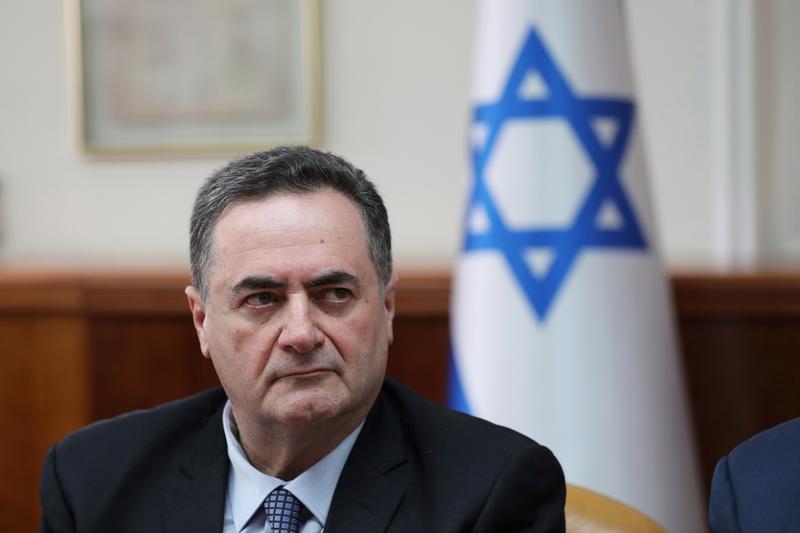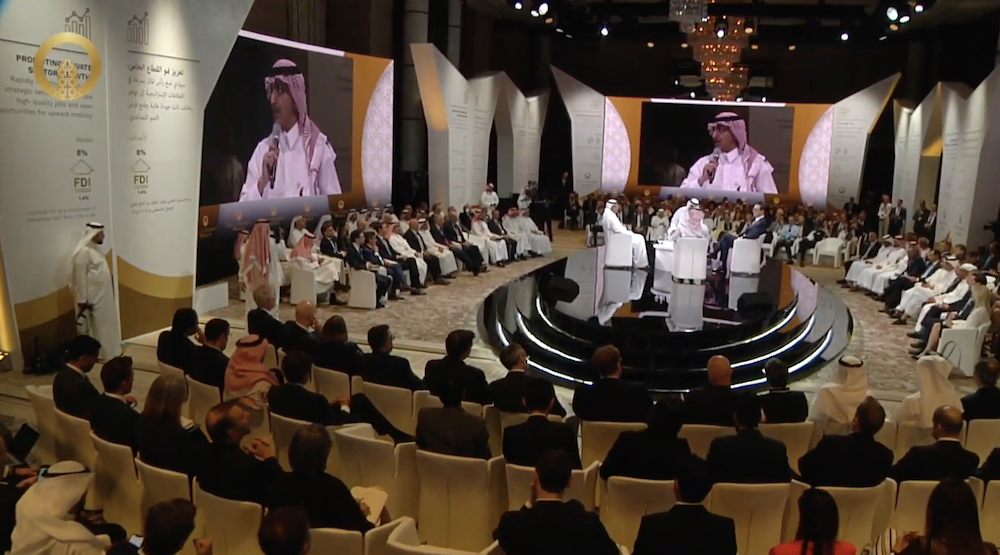Israel to attend U.S.-led Palestinian conference
16 June 2019
View attachment 8153
FILE PHOTO: Israel's acting foreign minister Israel Katz, who also serves as intelligence and transport minister, attends the weekly cabinet meeting in Jerusalem February 24, 2019. Abir Sultan/Pool via REUTERS
JERUSALEM (Reuters) - Israelis will attend a U.S-led conference in Bahrain next week on proposals for the Palestinian economy as part of a coming peace plan, Foreign Minister Israel Katz said on Sunday.
The United States has billed the gathering as a workshop to boost the Palestinian economy as part of a broader effort by President Donald Trump’s administration to address the Israeli-Palestinian conflict.
A source briefed on the event told Reuters Israel would send a business delegation but no government officials to the June 25-26 workshop, which is being boycotted by the Palestinian leadership.
“Israel will be at the Bahrain conference and all the coordinations will be made,” Katz said told Israeli Channel 13 News in New York. He gave no further details. The Foreign Ministry declined comment, as did a spokesman for Katz.
The White House did not immediately respond to a request for comment on what level of representation Israel was expected to have at the conference.
U.S. officials have said they are inviting economy and finance ministers, as well as business leaders, to Bahrain to discuss investment in the Palestinian territories.
Palestinian leaders have spurned the conference, alleging pro-Israeli bias from Washington.
The Palestinians say the still unpublished U.S. peace plan falls short of their goal of statehood. They blame a halt in U.S. aid and Israeli restrictions for an economic crisis in the occupied West Bank and Gaza Strip.
A White House official said on Tuesday that Egypt, Jordan and Morocco planned to attend the conference.
Egypt and Jordan’s participation is considered particularly important because they have historically been major players in Middle East peace efforts and are the only Arab states that have peace treaties with Israel.
One of the sources briefed on the event told Reuters that U.S. and Bahrain had deliberated over whether a non-official Israeli presence was preferable to a government-level delegation, given that Israel currently has a caretaker government in place, pending a September election.
A second source said Israel would be sending a private business delegation.
Trump’s plan faces possible delays due to political upheaval in Israel, after Prime Minister Benjamin Netanyahu failed to form a government last month and must fight a second election this year, set for Sept. 17.
Reporting by Dan Williams and Maayan Lubell in Jerusalem and Steve Holland in Washington; Editing by Andrew Cawthorne and Mark Potter

 www.reuters.com
www.reuters.com
16 June 2019
View attachment 8153
FILE PHOTO: Israel's acting foreign minister Israel Katz, who also serves as intelligence and transport minister, attends the weekly cabinet meeting in Jerusalem February 24, 2019. Abir Sultan/Pool via REUTERS
JERUSALEM (Reuters) - Israelis will attend a U.S-led conference in Bahrain next week on proposals for the Palestinian economy as part of a coming peace plan, Foreign Minister Israel Katz said on Sunday.
The United States has billed the gathering as a workshop to boost the Palestinian economy as part of a broader effort by President Donald Trump’s administration to address the Israeli-Palestinian conflict.
A source briefed on the event told Reuters Israel would send a business delegation but no government officials to the June 25-26 workshop, which is being boycotted by the Palestinian leadership.
“Israel will be at the Bahrain conference and all the coordinations will be made,” Katz said told Israeli Channel 13 News in New York. He gave no further details. The Foreign Ministry declined comment, as did a spokesman for Katz.
The White House did not immediately respond to a request for comment on what level of representation Israel was expected to have at the conference.
U.S. officials have said they are inviting economy and finance ministers, as well as business leaders, to Bahrain to discuss investment in the Palestinian territories.
Palestinian leaders have spurned the conference, alleging pro-Israeli bias from Washington.
The Palestinians say the still unpublished U.S. peace plan falls short of their goal of statehood. They blame a halt in U.S. aid and Israeli restrictions for an economic crisis in the occupied West Bank and Gaza Strip.
A White House official said on Tuesday that Egypt, Jordan and Morocco planned to attend the conference.
Egypt and Jordan’s participation is considered particularly important because they have historically been major players in Middle East peace efforts and are the only Arab states that have peace treaties with Israel.
One of the sources briefed on the event told Reuters that U.S. and Bahrain had deliberated over whether a non-official Israeli presence was preferable to a government-level delegation, given that Israel currently has a caretaker government in place, pending a September election.
A second source said Israel would be sending a private business delegation.
Trump’s plan faces possible delays due to political upheaval in Israel, after Prime Minister Benjamin Netanyahu failed to form a government last month and must fight a second election this year, set for Sept. 17.
Reporting by Dan Williams and Maayan Lubell in Jerusalem and Steve Holland in Washington; Editing by Andrew Cawthorne and Mark Potter
Israel to attend U.S.-led Palestinian conference
Israelis will attend a U.S-led conference in Bahrain next week on proposals for the Palestinian economy as part of a coming peace plan, Foreign Minister Israel Katz said on Sunday.



